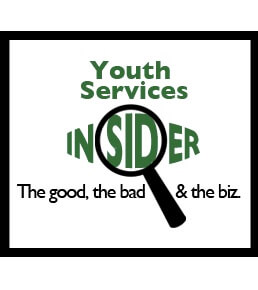 The U.S. Department of Health and Human Services and Congress should find more ways to financially support peer networks and advocacy led by current and former foster youth, said a group of young advocates at a briefing held at the U.S. Capitol.
The U.S. Department of Health and Human Services and Congress should find more ways to financially support peer networks and advocacy led by current and former foster youth, said a group of young advocates at a briefing held at the U.S. Capitol.
“I feel like I have friends and family now,” said Destiny Landry, a member of the HEROES organization in Springfield, Mass. “Now I’m more confident about going to college. Nobody helped me when I was younger. I don’t want anyone else to feel how I felt.”
The group also recommended an across-the-board mandate for trauma training of all key stakeholders involved in the child welfare system.
Monday’s briefing brought to an end to the first-ever conference for Foster Youth in Action (FYA), a California-based nonprofit that emerged in 2008 in an effort to connect peer-led groups that offer foster youth the chance to talk about their experiences with other youth involved in the system.
 Many of the groups also work to craft policy and legislative proposals related to improving the child welfare system. FYA currently counts 14 such groups in 13 states among its ranks.
Many of the groups also work to craft policy and legislative proposals related to improving the child welfare system. FYA currently counts 14 such groups in 13 states among its ranks.
The panel of young advocates at the briefing Monday’s, who all spent time in foster care or kinship care, represented FYA’s National Youth Leaders Council. The council polled 500 current and former foster youths in an effort to determine what issues it should focus on in the short term.
Among the issues, said panelist Nefertiti Franks of California, was “healing from trauma.”
“Not all foster youth have endured trauma, and the same things don’t impact everyone the same way,” said Mandy Urwiler, an advocate with the Mockingbird Society in Washington State. “But many of our peers have been traumatized, and…trauma can influence cognitive development.”
The council disseminated two specific proposals to attendees of the briefing:
- “That the Children’s Bureau whenever possible use existing grants programs to fund social action and peer-led programs, and that Congress consider establishing a new dedicated funding stream that provides funding to states for the development and operation of these programs.”
- “Trauma-informed care [should] be a mandatory and recurring training theme for any occupation that spends a significant amount of time with children or youth in foster care…. We believe a dedicated funding source is necessary to support the training and professional development of those who are involved in caring for foster youth.”
The discussion Monday’s focused mostly on investing in peer-led programs. While a better trained child welfare workforce would certainly be more sympathetic to the issues of foster youth, panelist Hasan Williams said peer groups are unique in their insertion of empathy into the lives of youths.
“Blood just makes you related, but passion…and empathy makes you family,” said Williams, who co-founded a peer group called FACES two years ago after spending the majority of his adolescence in group homes.
The peer network experience, he said, “made me a better man, better father, better person.”
One attendee of the briefing asked about data showing the effectiveness or impact of foster youth peer groups and networks. Thus far, there is little. To really establish the strategy in gold-standard evaluation, presumably, you’d need to compare participants to a control group of current or former foster youth who chose not to participate.
But is that necessary, we wonder? Certainly there is a movement toward data-driven decision-making when it comes to spending public money on youth services, or any services.
But maybe, this is one of those corners of the world where we can skip the hand-wringing about whether it’s fiscally prudent to offer foster youth a chance to share their trauma, and their joy, with others who understand the experience.
We could just concede that offering that chance to foster youth is something we owe them, and move to a discussion about the best practices in operating these networks and groups.
What YSI can say with certainty is that both of the proposals promoted Monday’s ring out as common themes for reform when you ask youth and young adults who are in or have spent time in foster care.
A few related proposals from the Foster Youth Intern program, which places current and former foster youth into Capitol Hill internships and helps them develop policy recommendations:
Brianne Lyn Nagamine, who was also on Monday’s’s panel, recommended subtle changes to the John H. Chafee Foster Care Independence program that would enable states to use federal funds for peer networks and health curricula aimed at preventing suicide and self-harm.
Amnoni Myers, who attended Monday’s’s panel, recommended that states receiving IV-B and IV-E foster care funds from the Department of Health and Human Services should be required to follow a federally-established minimum standard for training caregivers on the impact of trauma.
Written By John Kelly
Chronicle Of Social Change
Foster Youth-Led Council to Feds: Help Us Help Ourselves was originally published @ The Chronicle of Social Change | The Chronicle of Social Change and has been syndicated with permission.
Our authors want to hear from you! Click to leave a comment
Related Posts





